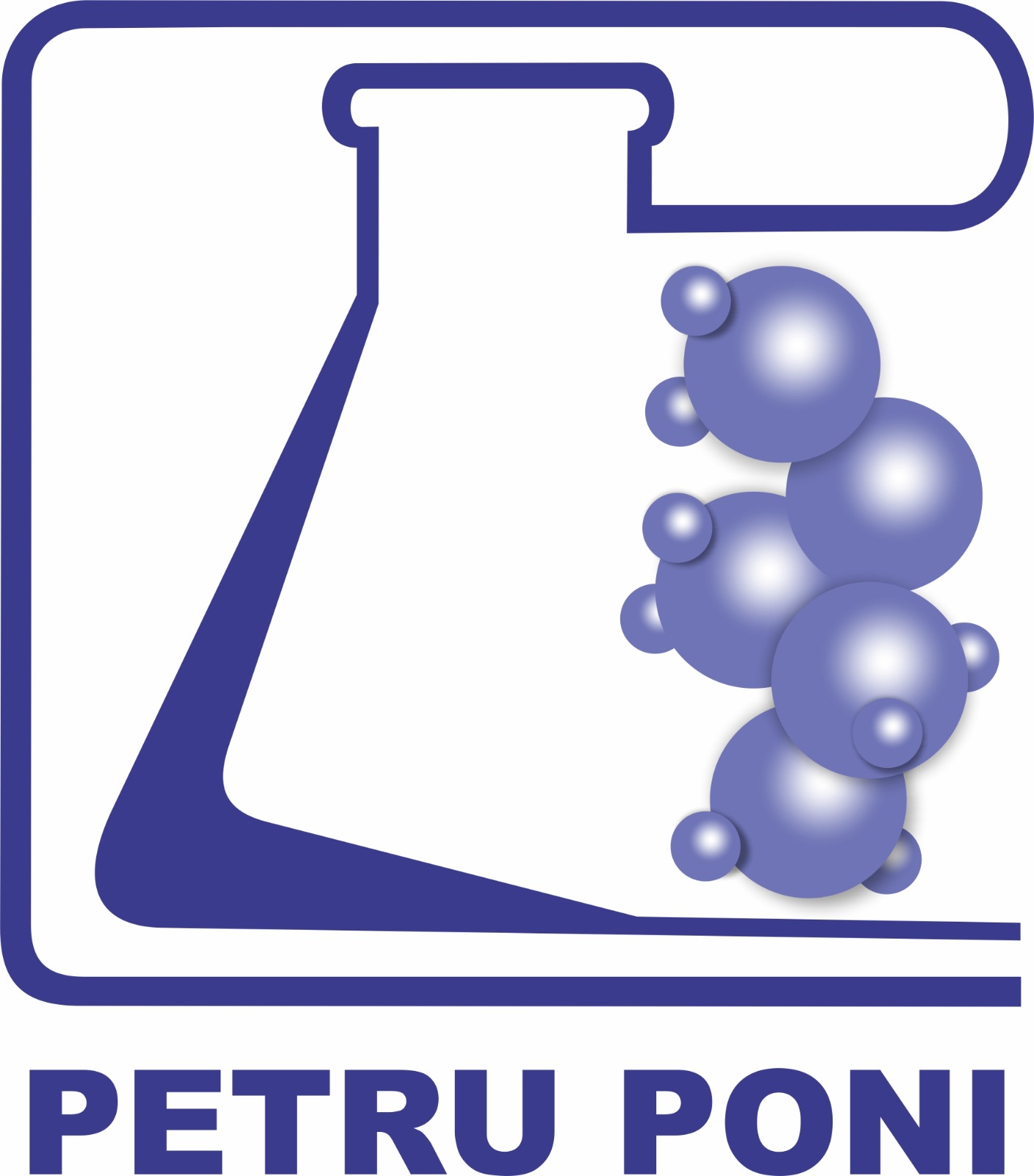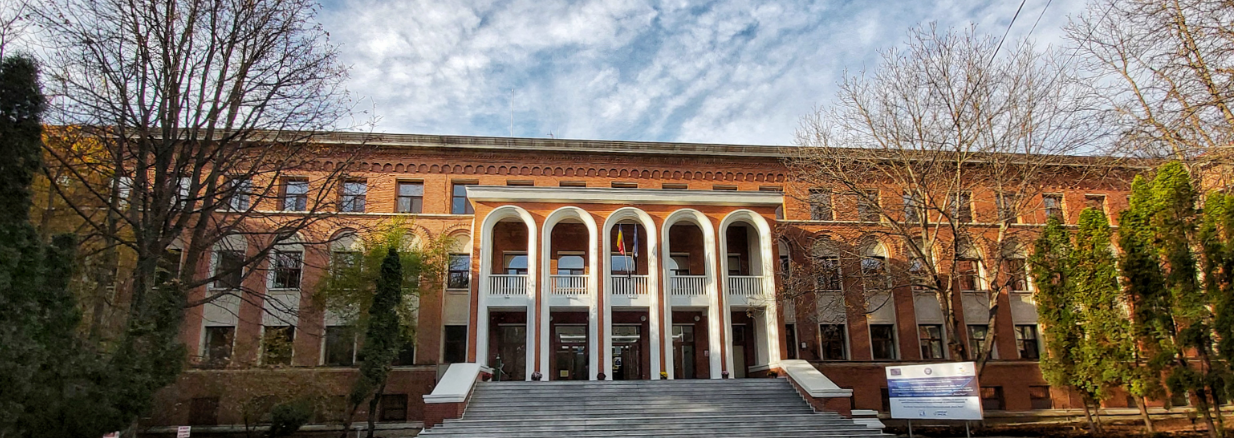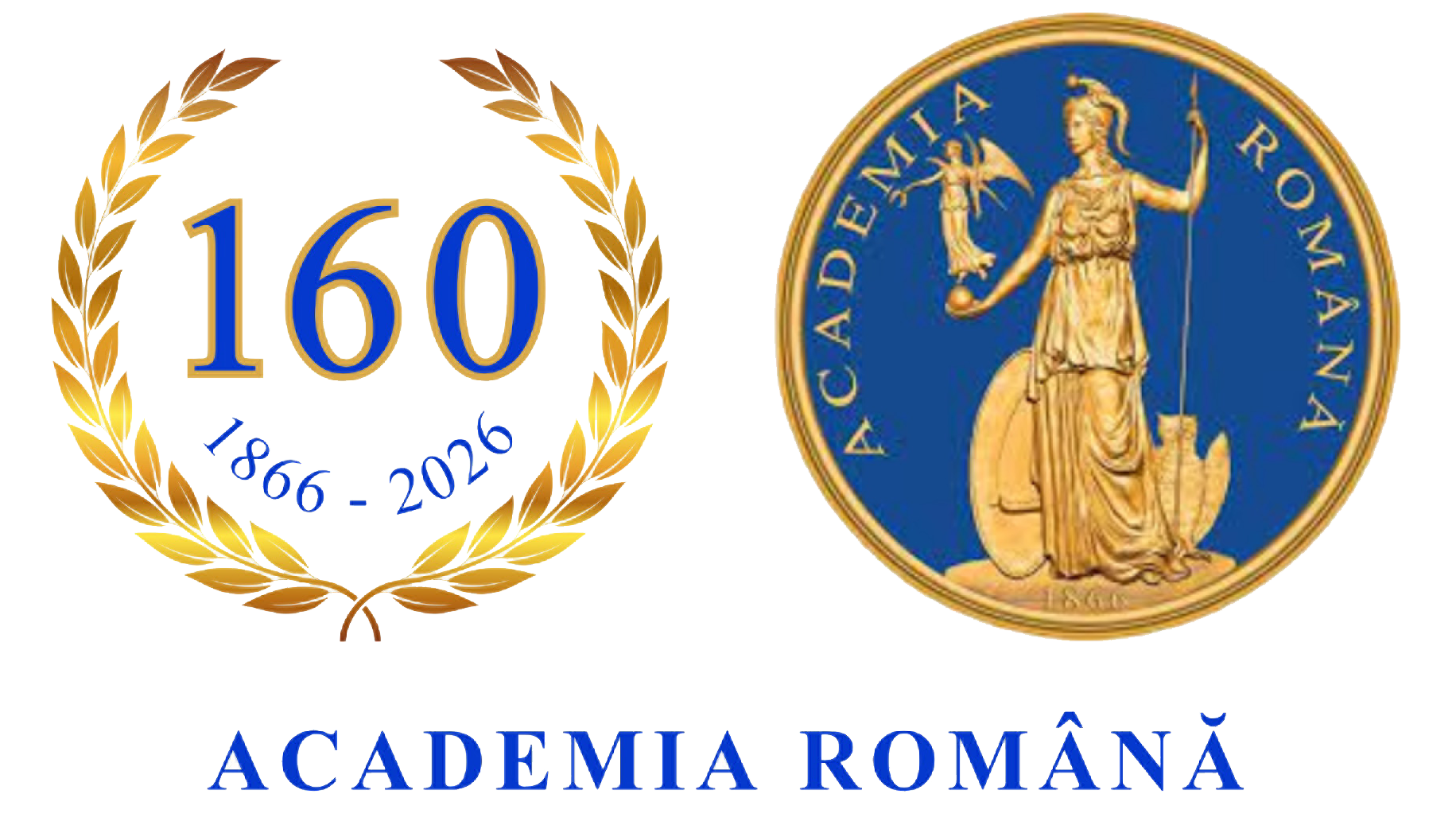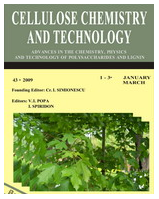|
|
Doctoral studies
| Acad. Bogdan C. Simionescu | Details |
Field of Research:
Polymer synthesis; polymer modification; functional polymers; polymer physics; polymers for drug/gene delivery; functional nanoparticles
Contact:
E-Mail: bcsimion@icmpp.ro
Phone: +40 332.880.550 ext. 109
|
| Dr. Maria Bercea | Details |
Field of Research:
Complex fluids: thermodynamic and rheological approaches for polymer containing systems
- Conformational characteristics of polymers in solution;
- Viscoelastic behaviour of macromolecules in different flow conditions;
- Self-assembling phenomena;
- Soft Materials: solutions, suspensions, hydrogels;
- Stimuli responsive (bio)materials;
- Self-healing (bio)materials
Proposed PhD theme:
- Self-healing materials: preparation, properties, and applications
Contact:
E-Mail: bercea@icmpp.ro
Phone: +40 332.880.550 ext. 246
|
| Dr. Maria Cazacu | Details |
Field of Research:
Chemistry - Coordination compounds/polymers and materials based on them with multiple applications
Research involves several branches of chemistry: organic, coordination, polymers, silicones and materials. It aims to:
- Development of original ligands with different denticities containing in the skeleton extremely flexible and hydrophobic (silicone) sequences and coordination compounds with various dimensionalities (0D, 1D, 2D or 3D) based on them;
- Fundamental aspects related to design and synthesis, structural characterization and behavioral studies;
- Study of the properties and evaluation of the applicative potential of the obtained compounds as materials, either as such or incorporated in polymeric matrices.
Proposed PhD themes:
- Multifunctional coordination compounds with ligands having flexible and hydrophobic backbone
- 2D materials based on two-dimensional permethylated metal-organic networks
Contact:
E-Mail: mcazacu@icmpp.ro
Phone: +40 332.880.550 ext. 118
|
| Dr. Sergiu Coseri | Details |
Field of Research:
Chemical functionalization of biopolymers using ecological approaches; Convenient implementation of the green polymers towards cutting edge applications: fuel cells, protein detection, fluorescent nanocrystals sensors, complex polyelectrolyte architectures with ultra-fast and highly loading/release behavior.
- Preparation and in deep characterization of polysaccharides derivatives using classical organic chemistry reactions.
- Fabrication of nanoscale derivatives employing natural resources, including agricultural wastes.
- Proton exchange membranes based on natural polymers for fuel cells, microfibrilated and nanocrystalline cellulose amazing ability to improve the mechanical properties of hybrid structures, effective fluorescent cellulose nanocrystals as sensors for detection of a wide range of pollutants.
Proposed PhD themes:
- Nanocrystalline cellulose, from its preparation from agricultural waste to efficient sensors in the detection of contaminants.
- Metal nanoparticles and their oxides incorporated in natural polymers as contrast agents in magnetic resonance imaging.
- Self healing structures based on oxidized biopolymers, a rationale and scalable study.
Contact:
E-Mail: coseris@icmpp.ro
Phone: +40 332.880.550 ext. 144
|
| Dr. Dana Damaceanu | Details |
Field of Research:
Innovative materials based on heteroaromatic/heterocyclic oligomers and polymers for high-tech applications: energy harvesting and storage, electronics, optoelectronics, sensors, CO2 capture, bioengineering
- Design and synthesis of heterocyclic and heteroaromatic monomers and oligomers/polymers and their structural characterization
- Processing the organic materials into films, coatings, membranes, etc. and their physico-chemical characterization
- Assessing the applicative potential/ testing the synthesized materials in applications such as membranes for gas separation and CO2 capture, bioengineering, sensors, optoelectronic devices (solar cells, light-emitting diodes, electrochromic devices, etc.), electronic devices (memory devices, supercapacitors, etc.)
Proposed PhD themes:
- Heteroaromatic azobenzene derivatives for advanced materials
- Hybrid materials based on heterocyclic polymers with improved properties
Contact:
E-Mail: damaceanu@icmpp.ro
Phone: +40 332.880.550 ext. 142
|
| Dr. Gheorghe Fundueanu | Details |
Field of Research:
Biomedical applications of polymers
- Synthetic and natural polymers, chemically modified, with complex architectures, for the controlled release of drugs, for the “targeting” of drugs, as biomimetic supports for the engineering (regeneration) of different tissues (bone, muscle, epithelial, etc.) or for other biomedical and biotechnological applications (flocculation, purification, enzyme immobilization, etc.).
- Systems with controlled delivery of drugs (self-regulated), based on polymers sensitive to external stimuli, which release the drug when normal physiological conditions are disturbed. Obtaining micro- and nano-particles in suspension or colloidal solutions from synthesized polymers.
- Design, production and testing of new polymers / polymer matrices with complex structures used for biomedical and biotechnological applications.
Proposed PhD themes:
- Synthesis and characterization of hydrogels from synthetic and natural polymers for controlled release of drugs.
- Micro- and nano-particles used as delivery systems for: water soluble and insoluble drugs; DNA in gene therapy; proteins, hormons, etc.
- Biomimetic and bioresponsive materials based on smart polymers for self-regulated drug delivery or other biomedical and biotechnological applications
- Polysaccharides and chemical modification of polysaccharides for biomedical applications
Contact:
E-Mail: ghefun@icmpp.ro
Phone: +40 332.880.550 ext. 157
|
| Dr. Luminita Ghimici | Details |
Field of Research:
Polyelectrolytes
- Synthesis and characterization
- Study of the physico-chemical properties of polyelectrolytes solutions
- Applications of polyelectrolyte solutions in the wastewater purification
Proposed PhD theme:
- The impact of molecular and medium parameters on the behavior of polyelectrolytes in solution and on their ability to interact with a wide range of particles/contaminants of inorganic and organic nature
Contact:
E-Mail: lghimici@icmpp.ro
Phone: +40 332.880.550 ext. 256
|
| Dr. Corneliu Hamciuc | Details |
Field of Research:
Multifunctional polymer systems based on organic compounds containing phosphorus and/or nitrogen.
- Synthesis and study of novel polymer structures with phosphorus and/or nitrogen atoms, having potential applications in biomedical field or in increasing the fire resistance of traditional polymeric materials.
- Preparation of polymer composites based on inorganic compounds with improved thermal, electrical, optical and magnetic properties.
Proposed PhD themes:
- Polymer composites containing organophosphorus compounds with tunable properties for multifunctional advanced materials.
- Polymer systems based on polyethers/polyetherketones for performance materials with thermal, optical and dielectric properties.
Contact:
E-Mail: chamciuc@icmpp.ro
Phone: +40 332.880.550 ext. 334
|
| Dr. Valeria Harabagiu | Details |
Research topic (i):
- Polymeric nanocomposite as visible light-driven photocatalysts
Photocatalysts are largely used to remove organic pollutants from waste waters. The most known is titanium dioxide characterized by high oxidation capacity, non-toxicity, chemical stability and relatively easy preparation. To overcome the drawbacks in uses in water photo-remediation (quite large band gap (absorption in UV light only) and the difficult recovery/recycling from the reaction medium), its doping with spinel ferrites (provide absorption in visible region and magnetic properties for easy recovery) could be envisaged. Moreover, processing doped tiatania in combination with appropriate polymers as membranes or thin films could increase the de-polluting effectiveness by coupling the photodegradation and adsorption processes.
PhD thesis objectives
- To propose and develop efficient methods for the preparation of inorganic photocatalysts nanoparticles characterized by magnetic properties and a band gap lower than 3.2 eV
- To investigate the influence of the nature of the polymeric matrix and of the processing parameters on the photocatalytic activity of composites membrane, micro/nanoparticles or thin films
- To verify the photocatalytic activity on different organic pollutants as a function of photocatalyst concentration and pH.
Research topic (ii)
- Polymeric nanocomposites for magnetic resonance imaging
Clinical testing based on magnetic resonance imaging (MRI) requires the use of contrast agents able to provide high resolution images. Commercially approved products contain either gadolinium cations or iron oxide nanoparticles. To improve the resolution, the doping spinel ferrites with rare earth cations should be considered, as this approach was already proved to decrease magnetic particle dimensions and to increase the magnetization. On the other hand, to reduce the toxicity and to provide specific accumulation of the contrast agent into tumor regions they should be covered by a biocompatible polymeric shell (e.g., polysaccharide), eventually conjugated with specific recognition agents.
PhD thesis objectives
- To design and prepare composite nanoparticles of low dimensional polydispersity, high magnetic properties and reduced toxicity
- To follow preparation / structure / physico-chemical property relationships of the prepared nanosized materials
- To prove their biological properties and imaging performances
Research topic (iii)
- Cyclodextrin-oligoester conjugates. Monitoring the polymerization of cyclic esters by using mass spectrometry
Cyclic oligosaccharides (cyclodextrins) – products of starch fragmentation, characterized by biodegradability, biocompatibility and reduced toxicity – are of interest for biomedical uses or in food industry and cosmetics. Their chemical modification is intended to improve the water solubility, especially of the most used homologue of the series, β-cyclodextrin, and of the complexation ability. In this view, oligoester chains could be attached to cyclodextrin by ring opening polymerization of cyclic esters initiated by the hydroxyl groups of cyclodextrin molecules. Mass spectrometry (MALDI MS, ESI MS si MS/MS) will give access to detailed characterization at molecular level of the evolution of the molecular mass, polydispersityy, secondry reactions and the product structure all along the synthesis process.
PhD thesis objectives
- To follow the influence of the reaction parameters (concentrations, solvents, catalysts, temperature, chemical structure of the cyclic ester) for the process of ring opening polymerization of different cyclic esters in the presence of β-cyclodextrin on the structure/properties of cyclodextrin-oligoester conjugates
- To verify the behavior of the other homologues, namely α- and γ-cicoldextrins, as initiators in ring opening polymerization of cyclic esters
- To deeply characterize the structure of the resulted conjugate (NMR, FTIR, MS)
- To investigate the complexation/release ability for different bioactive compounds
Research topic (iv)
- Polimeric materials based on cyclodextrins. Preaparation, properties, application
The multitude od primary and secondary hydroxyl groups of cyclodextrins allows their functions as crosslinking agents or initiating cores for dendrimers and star polymers. Cyclodextrins induce to the newly obtained materials their well known inclusion complexation ability for various organic and inorganic compounds. Processed as, membranes, micro/nanoparticles or micro/nanofibers, these hydrogel materials found a large spectrum of uses in pharmaceutics, purification of poluted waters as well as reagents in analytical chemistry.
PhD thesis objectives
- To provide methods suitable for the preparation of hydrogels based on cyclodextrin-polymer conjugates of controlled structures
- To investigate the influence of the nature and properties (chemical structure, molar mass) on the complexation/release capacities of the synthesized hydrogels for different bioactive compounds
- To process the hydrogels as membranes (porous or nonporous), micro/nanoparticles or nanofibers
- To comparatively evaluate the complexation/release of bioactive compounds by/from membranes, micro/nanoparticles and nanofibers
Contact:
E-Mail: hvaleria@icmpp.ro
Phone: +40 332.880.550 ext. 200
|
| Dr. Aatto Laaksonen | Details |
Field of Research:
- In silico design of therapeutics for the novel coronavirus SARS-CoV-2
(to study viral molecular mechanisms and focus on specific important interacting targets of high health importance in designing of new antibodies for SARS-CoV-2)
- Prediction of the antibody structures using homology modelling followed by classical MD simulations
- Determination of their electrostatic properties at different solution pHs for protein structures and complexes
- Evaluation of possible human cell receptors that might be used the virus
- predict the effects of the viral mutations and the polymorphisms of enzymes attached to cell membrane,
here specifically the angiotensin-converting enzyme 2
Proposed PhD theme:
- In silico design of high specific therapeutic peptides and antibodies
for the novel coronavirus SARS-CoV-2 infection treatment in humans
Contact:
E-Mail: laaksonen.aatto@icmpp.ro
Phone: +40 332.880.550 ext. 554
|
| Dr. Luminita Marin | Details |
Field of Research:
The research domain is focused on new eco-materials for applications of contemporary interest, mainly based on the chitosan biopolymer and/or phenothiazine heterocycle. The research activities are directed to the synthetizes of new compounds and preparation of materials based on them, with a specific design targeting applications in medicine, environmental protection, agriculture and optoelectronics. More specific, the new chitosan derivatives are manufactured as (i) films, hydrogels, nanofibers, nanoparticles and various formulations by in situ encapsulations of drugs or agents for soil conditioning and the new phentothiazine derivatives are manufactured as (ii) films, nanocrystals, cocrystals, fibers and micelles.
Proposed PhD themes:
- Water soluble chitosan derivatives for biomedical applications
The aim of the study is (i) to synthetize chitosan water soluble derivatives by grafting polycarbonate chains and/or quaternary salts and (ii) to manufacture them as materials suitable for in vivo applications, such as hydrogels, nanoparticles and nanofibers.
- Synthesis of imino-chitosan derivatives in heterogeneous system for biomedical applications
The aim is to prepare porous chitosan nanofibers by electrospinning technique and further to functionalize them by imination reaction with bioactive aldehydes, to increase their potential for the treatment of chronic injuries and burns.
- Nanoparticle formulations based on chitosan for controlled drug release
The aim is to prepare chitosan based nanoparticle loaded with drugs in order to establish effective formulations for controlled delivery of acetaminophen and erythromycin.
Contact:
E-Mail: lmarin@icmpp.ro
Phone: +40 332.880.550 ext. 135
|
| Dr. Marcela Mihai | Details |
Field of Research:
Complex multicomponent systems based on natural and synthetic polyions (synthetic pathway, characterization, application).
- Synthesis and characterization of micro and nanoparticles and microcapsules obtained from synthetic and natural polymers and organic/inorganic composites.
- Applications of synthesized smart materials (pH and/or ionic strength sensitive) as controlled drug delivery cargoes or as specialized sorbents (selective, reusable) for organic (drugs, dyes) or inorganic (heavy metal ions) compounds.
Proposed PhD themes:
- Composite microparticles with controlled polyelectrolyte architectures tuned as multi-cycle loading/release containers for bioactive compounds
- Zwitterionic porous microparticles with antimicrobial activity and drug delivery capabilities
Contact:
E-Mail: marcela.mihai@icmpp.ro
Phone: +40 332.880.550 ext. 164
|
| Dr. Loredana Nita | Details |
Field of Research:
Polymeric systems for bio-applications: functional compounds and (nano)structured interpenetrated networks
- Synthesis and characterization of polymeric network based on natural/synthetic polymers with stimulus sensitivity.
- Application platforms for: (i) synthesized gels as self-healing compounds for biomedical applications (by inclusion of specific antibacterial and/or antitumoral agents), (ii) new generation of injectable carrier gels/inks for 3D printing or 3D cell culture media.
Proposed PhD themes:
- Design of multicomponent gels based on natural/synthetic polymer systems and low-molecular-weight gelators.
- Bioactive complex based on new robust interpenetrated hydrogel network system and specific compounds.
Contact:
E-Mail: lnazare@icmpp.ro
Phone: +40 332.880.550 ext. 327
|
| Dr. Mariana Pinteala | Details |
Field of Research:
*Synthesis and characterization of nanoconjugates (core: Fullerene C60, cyclodextrins, magnetite, gold oxide, cerium oxide) with biomedical application; *Inclusion complexes of cyclodextrins/modified cyclodextrins with different bioactive molecules; *Pseudo- and polyrotaxanes of cyclodextrins with (co)polymers, acting as gene and/or drugs controlled releasing systems; *Synthesis and characterization of polymers and copolymers; *Cationic, anionic, and radical copolymerization; *Structure-property relationship evaluation, data analysis, and interpretation.
Proposed PhD themes:
- Synthesis of advanced (macro)molecular systems, producing of well-defined supramolecular aggregates, functional (macro)molecular structures and systems for biomedical applications.
- ESR spectroscopy investigations of nanoantioxidants and reactive species generators
Contact:
E-Mail: pinteala@icmpp.ro
Phone: +40 332.880.550 ext. 400
|
| Dr. Iuliana Spiridon | Details |
Field of Research:
Supramolecular structures based on natural polymers
The continuous evolution of consumer requirements involves huge efforts to develop new advanced materials or to optimize existing materials, considering their life cycle from design, to production and distribution and, finally, to recycling. The capitalization of lignin – a secondary waste resulting from biomass processing to obtain cellulose and paper – for the development of high value-added products has many challenges, having in mind the potential of this polymer. Lignin and other biopolymers (PVA, PLA, PHBV, polysaccharides) will be used to develop supramolecular systems with various applications (packaging, pharmaceutical industry, automotives, construction, etc.), which will represent an optimized alternative to similar materials obtained from synthetic polymers.
Proposed PhD themes:
- Innovative supramolecular structures based on natural polymers
- New ecological materials based on natural polymers
- New lignin-based composite materials
Contact:
E-Mail: spiridon@icmpp.ro
Phone: +40 332.880.550 ext. 359
|
|
|
|










